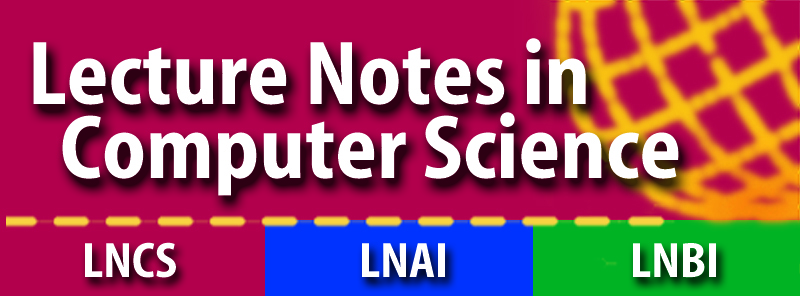Call for Papers
Paper Submission
Authors are invited to submit original papers reporting on research results or novel applications in technology-enhanced learning. Submissions will be handled through EasyChair: Submit.
Papers for submission should be formatted according to the Springer LNCS Authors Guidelines
with a full paper having a maximum of 10 pages.
If you are interested in submitting a paper please submit an Abstract via Easychair - you simply create the submission and complete the personal details/abstract section without attaching the full paper. You must then update your submission to include the full paper PDF before the final deadline.
Since the review process will be double-blind, the submitted manuscript should not contain the authorsí names, affiliations, or any information that may disclose the authorsí identity.
All papers should be submitted in PDF format.
All accepted papers presented at the conference will be published as a volume in Springer Lecture Notes in Computer Science(LNCS) and Springer will also sponsor a Best Paper Award

Topics
Areas of interest include but are not limited to the following:
- Personalized and Adaptive Learning
- Computer Support for Intelligent Tutoring
- Intelligent Tools for Visual Learning
- Informal Learning on the Workplace
- Web-based Learning for Oriental Languages Learning
- Game-based Learning and Serious Games
- Personal Learning Environments (PLE)
- Massive Open Online Courses (MOOC)
- Computer Supported Collaborative Learning
- Web 2.0 and Social Learning Environments
- HTML5 Web-based Learning
- Virtual environments and 3D graphics for e-learning
- Intelligent Learner and Group Modelling
- Learning Analytics
- Human Factors and Affective Computing for Learning
- E-Learning Platforms and Tools
- Design, Model and Framework of e-Learning Systems
- Deployment, Organization and Management of Learning Objects
- Open educational resources (OER)
- E-Learning Metadata and Standards
- Semantic Web and Ontologies for E-Learning
- Mobile, Situated and Blended Learning
- Bring your own Device (BYOD)
- Cloud-based Learning
- Pedagogical Issues
- Mobile learning
- Digital libraries and Web corpora for e-learning
- Assessment in e-learning
